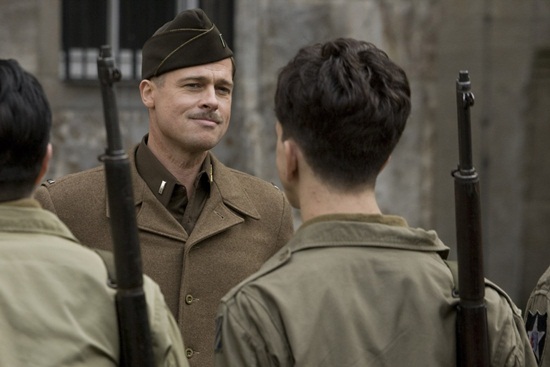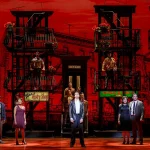Inglourious Basterds (2009) 🎬💥
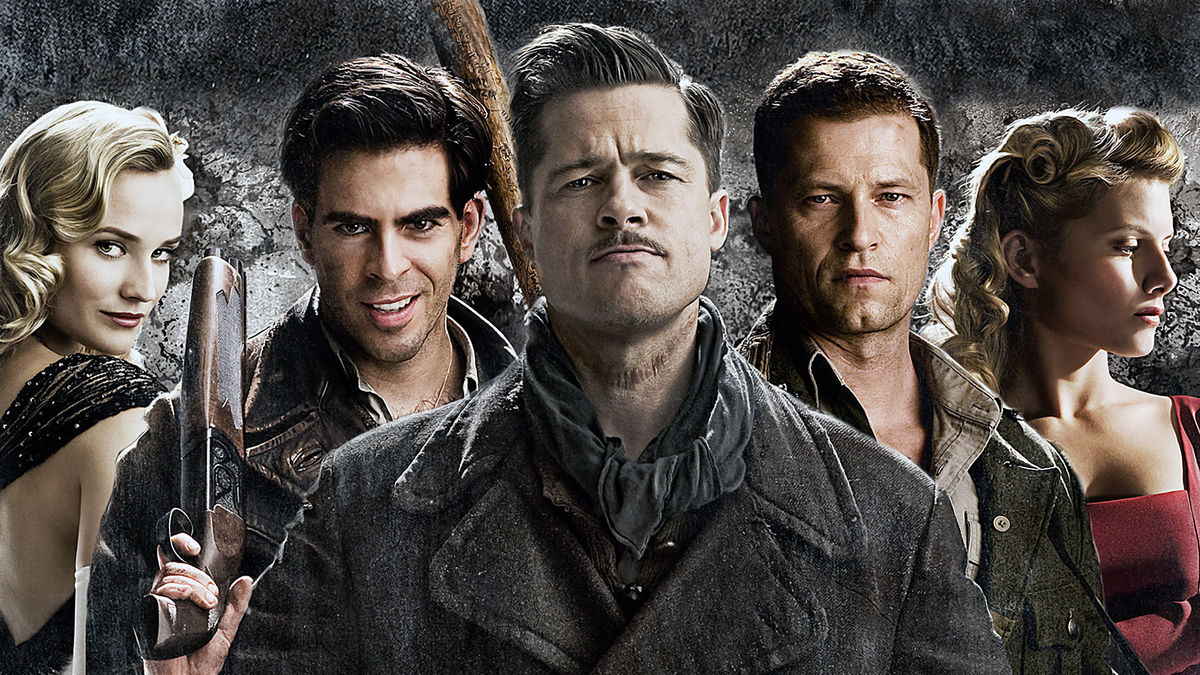
Inglourious Basterds (2009) – Movie Summary 🎬💥
Inglourious Basterds (2009), directed by Quentin Tarantino, is a bold and inventive war film that combines historical fiction, dark humor, and Tarantino’s signature dialogue-driven style. The movie reimagines World War II, infusing it with a sense of revenge fantasy, violence, and unexpected heroism. Set in Nazi-occupied France, the film follows multiple interconnected storylines and characters, all driven by a desire for vengeance against the Third Reich.
Plot Summary
The film opens in 1941, with a tense and unforgettable scene where Colonel Hans Landa (Christoph Waltz), a cunning and ruthless Nazi officer, interrogates a French farmer, Perrier LaPadite (Denis Ménochet), about hiding a Jewish family. This opening sequence establishes Landa as a terrifying and charismatic villain. His impeccable intellect and cruel methods set the tone for the rest of the film. Ultimately, Landa discovers the hidden family and has them murdered, leading to the escape of Shosanna Dreyfus (Mélanie Laurent), a young Jewish woman who witnesses the slaughter.
The narrative then shifts to a group of Jewish-American soldiers known as the “Basterds,” led by the brutal and charismatic Lieutenant Aldo Raine (Brad Pitt). Raine’s mission is simple: to terrorize Nazi soldiers and create chaos behind enemy lines. The Basterds, who have a reputation for scalping Nazis and leaving them with gruesome marks of their revenge, are portrayed as ruthless, merciless warriors bent on dismantling the Nazi regime.
One of the film’s key storylines revolves around Shosanna, who has escaped to Paris and is now running a cinema. In a twist of fate, she becomes involved in a plan to assassinate Nazi leaders during a movie premiere at her theater. The Nazi high command, including Adolf Hitler (Martin Wuttke) and Joseph Goebbels (Sylvester Groth), are scheduled to attend a special screening of a propaganda film. Shosanna, seeking revenge for the murder of her family, decides to use this event to exact her own brand of justice.
As the film weaves through multiple storylines, the Basterds and Shosanna’s plot converge toward a climactic event. The Basterds, led by Aldo Raine, have their own mission: to take down high-ranking Nazi officers, including the elusive Hans Landa. The tension builds as the two groups prepare to carry out their respective plans, all leading to a fiery, violent conclusion that turns the tides of history in a way only Tarantino could imagine.

Key Characters & Performances
- Lieutenant Aldo Raine (Brad Pitt): The tough, Southern-born leader of the Basterds, Raine is a charismatic and unapologetic force of nature. His unorthodox leadership style and thirst for revenge make him one of the film’s most memorable characters.
- Colonel Hans Landa (Christoph Waltz): The standout performance of the film, Christoph Waltz’s portrayal of Landa earned him an Academy Award for Best Supporting Actor. Landa is a cunning and manipulative Nazi officer who enjoys playing mind games with his victims. His chilling and complex character is one of the main driving forces of the plot.
- Shosanna Dreyfus (Mélanie Laurent): The young Jewish woman who survives the massacre of her family, Shosanna is determined to avenge their deaths. Her calm and calculating demeanor contrasts sharply with the violent world around her, making her a compelling and relatable character.
- Donny Donowitz (Eli Roth): Also known as “The Bear Jew,” Donowitz is a member of the Basterds known for his brutal method of killing Nazis with a baseball bat. He brings a sense of sadistic pleasure to his work, adding to the film’s dark humor.
- Frederick Zoller (Daniel Brühl): A Nazi sniper and war hero, Zoller becomes infatuated with Shosanna, leading to a complicated and dangerous relationship that plays a pivotal role in the plot.
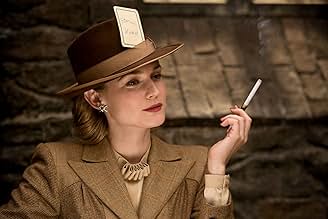
Themes & Style
Revenge and Justice: A central theme of Inglourious Basterds is the desire for revenge, especially against the Nazis. The Basterds and Shosanna both seek justice in their own ways, and the film explores the complexities of retribution—whether it’s personal revenge or revenge for the atrocities committed by the Nazi regime.
History and Fiction: True to Tarantino’s style, Inglourious Basterds rewrites history in a way that reflects his love for genre films and his desire to upend expectations. The ending, in particular, is a fictionalized account of how World War II might have ended, with the Basterds and Shosanna achieving their version of victory over the Nazis. The film plays with the concept of historical narrative, blending fact with fiction in a way that is both thrilling and entertaining.
Language and Dialogue: One of Tarantino’s trademarks is his sharp, memorable dialogue, and Inglourious Basterds is no exception. The film features scenes of tension-building dialogue, including the famous “coffee scene” between Landa and the French farmer. Tarantino’s writing is also clever in how it blends languages, with characters speaking in German, French, English, and Italian, enhancing the international flavor of the film.
Violence and Satire: As with many of Tarantino’s films, Inglourious Basterds uses violence both to shock and to satirize. The film balances graphic violence with absurd humor, creating a unique tone that has become a signature of Tarantino’s work. The violent acts in the film are often exaggerated, reinforcing the sense of fantasy and the absurdity of the characters’ acts of vengeance.
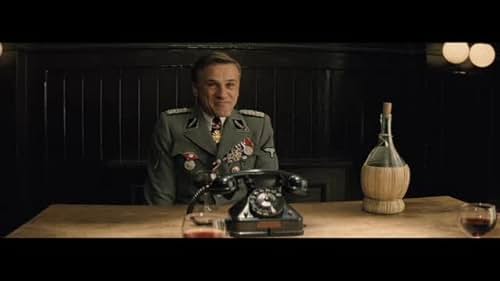
Cinematic Impact & Legacy
Inglourious Basterds was a critical and commercial success, earning multiple Academy Award nominations, including Best Picture and Best Director for Tarantino. Christoph Waltz’s performance earned him an Oscar for Best Supporting Actor, cementing his place as one of Hollywood’s most versatile and compelling actors. The film also reintroduced Brad Pitt as a leading action star in a role that blended humor, violence, and heroism.
The film’s dialogue and intense scenes of tension became instantly iconic, with the “One Hundred Nazi Scalps” speech by Aldo Raine and Landa’s interrogation scenes becoming some of the most quoted moments in modern cinema. The film’s blending of historical fiction, graphic violence, and dark humor set it apart from other war films, making it a standout piece in both Tarantino’s career and in cinema history.
Inglourious Basterds remains one of the most original and influential war films of the 21st century, and its combination of Tarantino’s trademark style with a fresh approach to the WWII genre has ensured its place as a modern classic.
